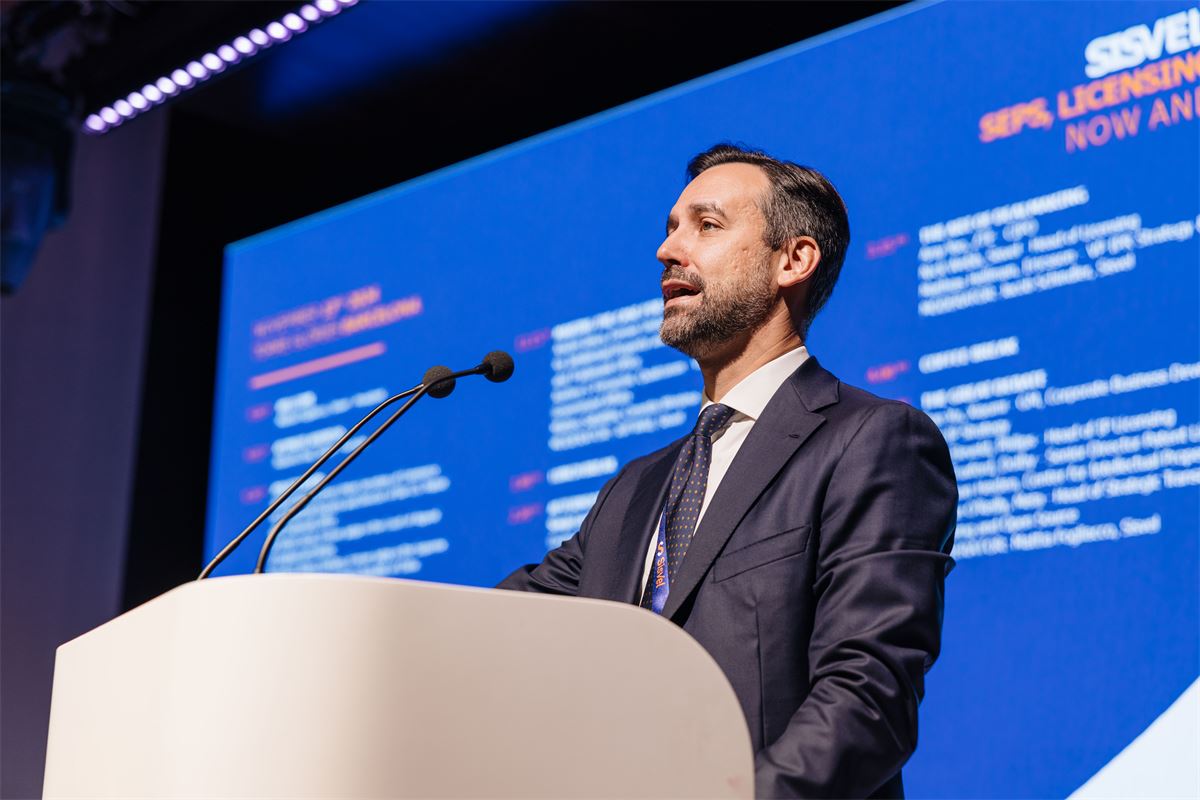European SMEs, innovation and tech security under threat

You may not have heard of Sisvel. But you will know our partners. They include European R&D powerhouses such as Airbus, Deutsche Telekom, Ericsson, Fraunhofer, Orange, Philips, Siemens, Telefónica and Telecom Italia.
We bring together patents owned by these companies and many others that underpin breakthrough technology. We then offer a one-stop licence for the resulting pools (packages) to anyone who wants one.
Since Sisvel was established in Italy in 1982, we have returned billons of euros in royalties. This cash has then been reinvested in further R&D. Technology developers, implementers and consumers all benefit.
Draghi principles under threat
Published to wide-ranging praise in September, the Draghi report emphasises the importance of incentivising, scaling and commercialising European innovation. It was music to our ears. At Sisvel, we know the inventive potential there is in the EU. We see it every day. As Draghi says, the challenge is in turning this into products and companies.
To do so, it is vital to understand where Europe does currently enjoy advantages. One area is connectivity and mobility. Here we are a global leader.
European companies and institutions are at the forefront of the international standardisation process that enables different devices to interact with each other and that drives new industries in areas such as the IoT.
Our companies and research institutions are also on the frontline in developing the technology enabling all this. It is something to be proud of.
Now, though, a threat has emerged. Not from competitors elsewhere in the world but from developments closer to home.
In April 2023, the European Commission proposed an EU regulation to govern the licensing of standards essential patents (SEPs), including those that underpin global connectivity. It was approved by MEPs with almost no debate or scrutiny earlier this year and is now being considered by the Council of Ministers.
Unfortunately, as currently framed, the legislation will do the opposite of what its proponents seek to achieve. Rather than being a spur to more innovation it will:
- Trigger a wealth transfer from low resource European SMEs to deep pocket corporations based outside Europe.
- Threaten European leadership in global connectivity and European technology security.
- Disincentivise collaboration to develop connectivity technology.
SME danger
Royalties generated from SEPs are typically paid by big companies, most based outside the EU. By contrast, the vast majority of European SMEs currently using connectivity technology are much less exposed.
The dynamic is likely to change should the regulation be adopted. Because its provisions would almost certainly lead to lower returns from larger licensees, licensors will look elsewhere for income. European SMEs are an obvious target, especially because the regulation creates a process to enable this.
The result would be a transfer of royalty obligations from high wealth to low wealth, from the rest of the world to Europe. The very opposite of what Draghi envisages.
The end of European leadership
An alternative scenario is equally disheartening: SEP licensors reducing their R&D investments.
As some of the most important of them are EU-based – Ericsson and Nokia, for example – such an outcome would result in reduced European connectivity leadership and greater reliance on technology developed elsewhere. At a time when policy priorities are centred on ensuring innovation takes place close to home, this is a dangerous prospect.
What’s more, without current incentives to invest in standardised connectivity R&D, the business logic of doing so is questionable. Why accept the lower margins the creation of foundational standards technology involves when you can develop more lucrative, proprietary tech? After all, this is a decision that most implementers of standards-based technology have already made.
Still time
Sisvel shares many of the SEP regulation’s aims: we are committed to transparency, lower transaction costs and powering innovation. But the legislation has not been thought through. In benefiting multinational businesses at the expense of European SMEs, while reducing incentives to develop the standardised connectivity technology that exciting, new industries depend on, it is a long way from the Draghi playbook.
To make matters worse, there is no serious evidence supporting the case for change. Instead, a model that functions well – providing multiple benefits to billions of people and for which Europe largely sets the rules – faces disruption for no good reason.
The EU’s policy makers have not deliberately decided to dismantle a system that delivers so much. But that is the risk. To avoid it, they should take another look at the regulation and consult more widely on its potential effects.
There is still time to safeguard Europe’s connectivity leadership and the interests of our SMEs. Let’s stay true to the Draghi principles by taking it.
Related
EU denies picking on US tech giants, says US also…
BRUSSELS (Reuters) - Europe's new tech rule aims to keep digital markets
€450M to drive green data infrastructure, the next startup hub,…
This week we tracked more than 70 tech funding deals worth over €1.3 billion, and over 5 exits, M&A transactions, rumours, an
European tech sector poised for stronger 2025, says Monument Group;…
Let’s kick things off with tech! Monument Group’s Zac Williams expects a big spike in European technology deals in 2025, as the region offers more appealing
Women still marginalised in Europe’s Tech Ecosystem
European startups founded or co-founded by women raised €10.2B in 2024 across nearly 2,000 transactions, according to Pitchbook’s latest study. This repr










